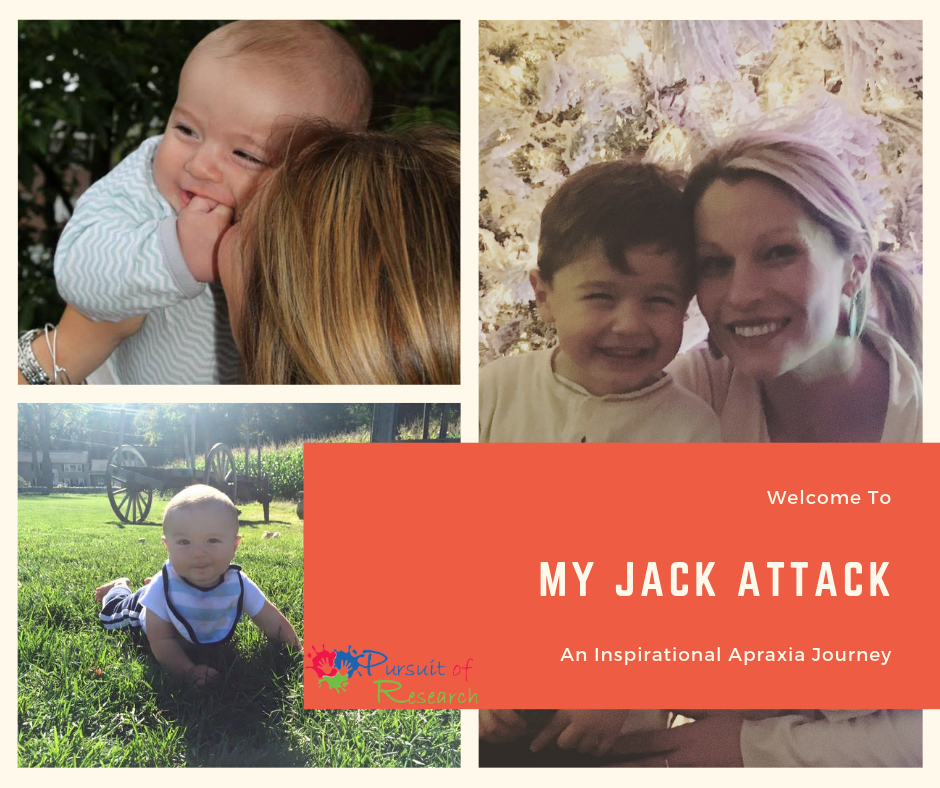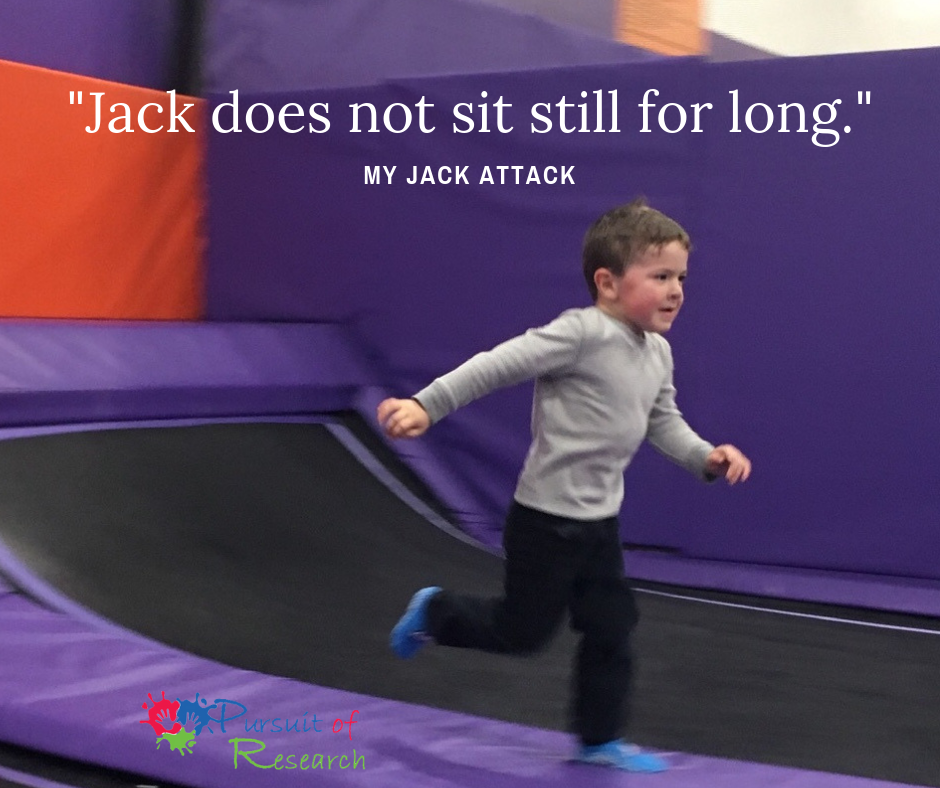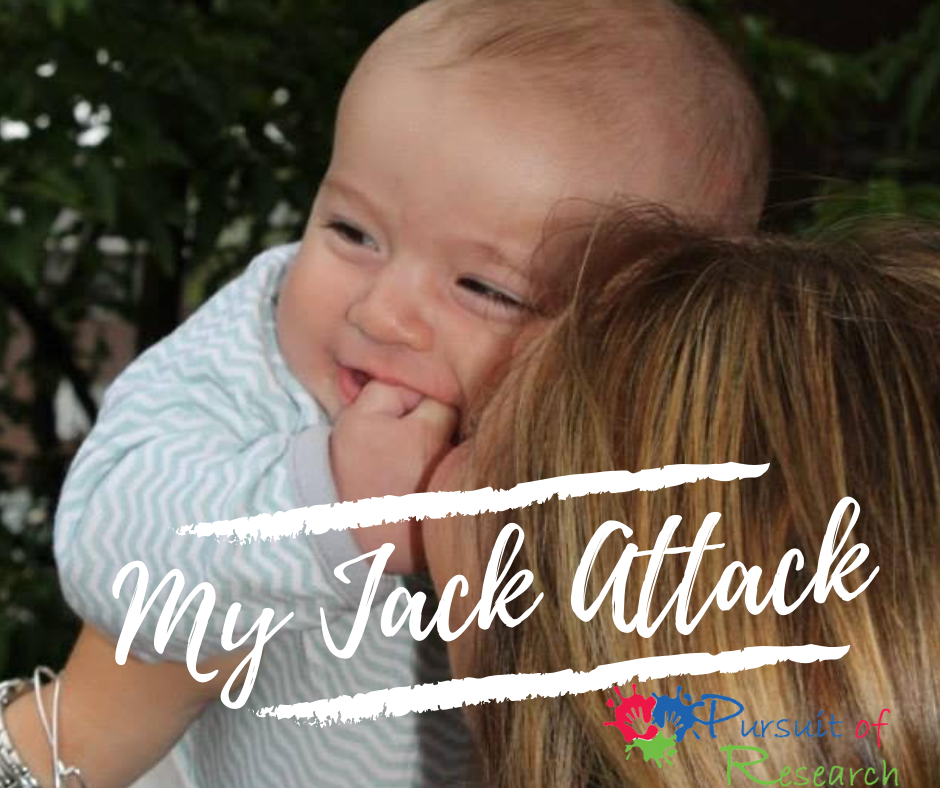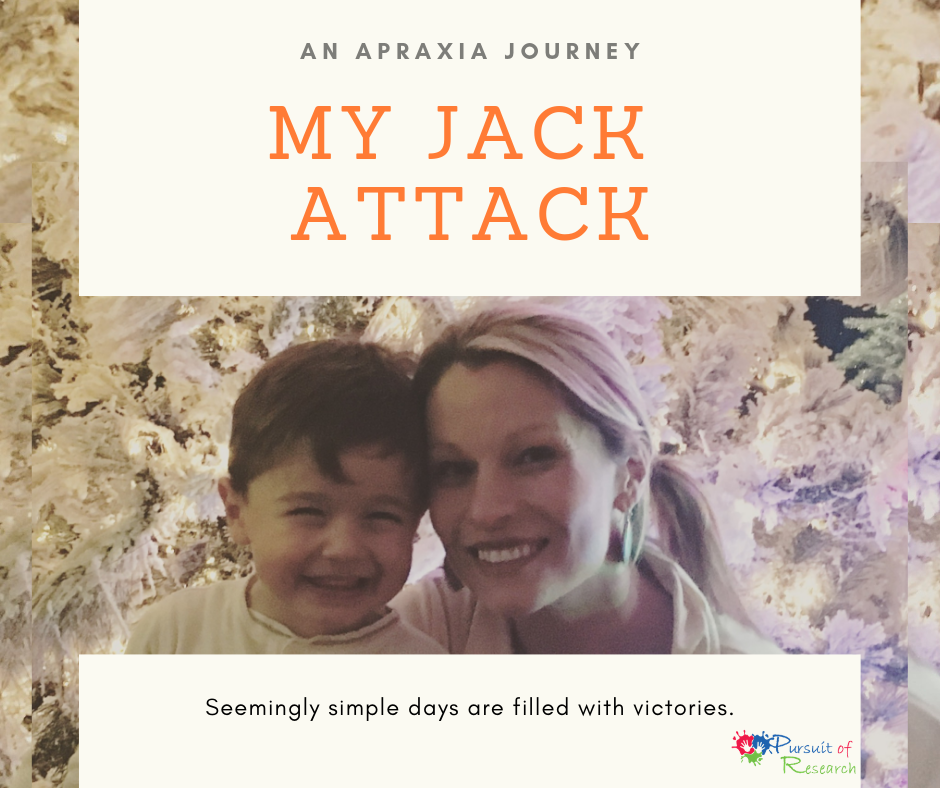“I had feared the worst with his diagnosis including apraxia and sensory processing disorder but he is proving to me that he is one happy, very smart, successful child. ”
Anne Reed, Jack’s mom, studied Psychology at Harvard University and formerly worked in Neurology research at Massachusetts General Hospital.

My beautiful, loving and active son, is a pure bundle of energy and is aptly nicknamed Jack-Attack. He is 4 years old and currently attends an integrated early intervention preschool.
Today we were hit with a huge snow storm, so instead of going to his usual speech and occupational therapy at school, we spent the day doing your typical snow day activities. We shoveled heavy snow together, while he catapulted himself down every snow bank he could find, and trekked around in deep 14″ snow. We then practiced karate, and ran up and down our apartment building hallways “to get more energy out.” He played in our home while jumping on his mini trampoline in between every snack and activity. This boy does not sit still for long.

Today he carefully ate his age appropriate food, as I reminded him to use his teeth to chew his food and take smaller bites. After dinner tonight Jack politely asked me for “
This seemingly simple day was filled with a lot of victories. You see Jack has a few neurological diagnoses which we work on as best we can. His latest evaluations from Massachusetts General Hospital include Sensory Processing Disorder, Developmental Coordination Disorder, Expressive Language Disorder, Speech Sound Disorder, Apraxia, Monitor for Attention-Deficit/Hyperactivity Disorder, Combined Presentation. Due to these delays and disorders, some things that are simple for other children are very difficult for Jack. That is why today was filled with many victories. With help of many professionals and resources I have been able to figure out the best sensory diet, therapy schedule, and accommodations to the best of my ability so far so he can have happy childhood days like these.
I first noticed something was off with Jack as soon as he was born.

He could not latch to breastfeed. His mouth was not doing what it should be doing in order to properly ingest my milk. Lactation consultants noticed his tongue tie but could not pinpoint what else might be wrong. The tongue had been cut, so the difficulty nursing did not make much sense. After lots of support, he finally got the hang of it and started to nurse and put on weight. When it came time to use a bottle, it was a small nightmare. Every kind of bottle proved difficult for Jack until he was old enough to use sippy cups and straws. When it came time to eat solid foods, the difficulty continued. It seemed that his tongue was trying to do most of the work (unsuccessfully), and he was choking on food, over-stuffing his mouth, and unable to use his teeth to chew.
At the same time, he was unable to make many sounds and words, so our pediatrician sent us to an early intervention program.
Suddenly Jack had all kinds of new “friends” in our home teaching him lots of skills that he needed. I did not realize the extent of his delays and difficulties until these people came into our lives. I am so grateful they were there to help Jack so early, and give him so much attention and love. An occupational therapist played fun games to teach him safe ways to eat. A speech therapist taught him to make new sounds and new words. Another therapist worked on his fine motor skills with new toys. He attended reading groups, preschool prep groups, tumbling gymnastics, and an early intervention class at just age 2 to pull it all together. I learned about apraxia, the difference in fine motor skills and gross motor skills, and how important sensory processing is in a small boy.
The professionals were constantly evaluating Jack-Attack, noticing that he was the busiest child in the room, and yet at the same time, how eager he was to learn and give them his very best effort. They noticed his kind, sweet behavior, and his desire to hug all his new “friends” and take breaks from his sessions to give me hugs, kisses, and snuggles. This sweet boy has challenges but is also filled with pure joy and love. I grew to love his new “friends” and they stood by my side as we approached our local public school to enroll him into preschool at age 3, acquire more services through the school and set up his first IEP. They stood by me as I brought Jack to numerous doctors to rule out hearing issues, vision issues, ENT issues, autism, and possibly missed genetic disorders. We were very, very busy.
I learned that these disorders are trickier to officially diagnose than I thought they would be, but I knew in my heart it was not autism, and that apraxia fit all of the soft signs we were seeing in Jack. Diagnosing a young child is a frustrating process because I would like concrete answers at all times, but often times I have to be more patient and realize the diagnosis is not as important as the services that are in place for him. He is getting the services he needs and I will always continue to advocate for every accommodation and support that I believe will best serve my child.

Today is filled with victories, because my child who cannot stand certain sensations, is playing with play-dough without a meltdown. He is enjoying the sensations today and you can usually find him playing with Floam, slime, kinetic sand, and other sensory-stimulating toys. Jack has gotten obsessed with juicing our own fruit juices and doing smoothies he’s finally drinking IQed with me. My child with apraxia of speech is making sentences, and close approximations on words like yogurt, and can name more dinosaurs than I can. People often say to me that he sounds like he has a cute British accent when he speaks. I’ve heard the accent referred to as an apraxia accent. The accent is adorable right now but I understand it could be an issue in the future and is hard for many children. It is challenging for others to understand him fully, but he is working hard and the speech is improving daily. Today my child who cannot sit still for long is appropriately channeling his energy into athletics and fun activities. Not only does he like crashing into snow banks, couches, bean bags, etc., but he needs to crash into things to get the sensory input in his body. He has to crash and roll in order to get the grounding that he is seeking. He has to integrate this into his days to handle the amount of energy inside of him, and all the stimulus he absorbs throughout the day. He requires many reminders to be gentle and not crash into people all the time. It is very tedious but I have to keep on it. Today he is eating and swallowing food so well that I am in awe. He is also finding that he is brilliant when it comes to following complicated instructions, constructing buildings, robots, and transforming toys. He is confident after so much early intervention, karate training, and gymnastics, and I know he feels very proud of all the hard work he has done. His confidence amazed me and humbles me. I feared the worst with his diagnosis including apraxia and sensory processing disorder but he is proving to me that he is one happy, very smart, successful child.
I know this journey with my Jack-Attack is a little different than I was expecting, but again now seemingly simple days are filled with victories.
“Welcome to Holland” is a prominent essay about having a child with a disability. The poem, written in 1987 by Emily Perl Kingsley, a writer for Sesame Street and social activist, was inspired by Emily’s son Jason who was born with Down Syndrome.
The following is a clip from the CBS TV movie, “Kids Like These” also written by Emily Perl Kingsley, in which Tyne Daly performs “Welcome to Holland” The film, about a middle-aged couple who have a son with Down Syndrome, won numerous awards.
I am constantly looking for more ways to support his neurological development. I’m exploring holistic supports such as fish oils, IQed nutritional powder, Ayurvedic foods, chiropractic therapy, mindfulness breathing practices, essential oils, and pretty much anything I can get my hands on. I spend hours on websites such as this one through the Cherab Foundation, attend local Apraxia Foundation events, and connect with other parents on similar journeys. I pick the brains of all his providers and feel blessed to have such knowledgeable teachers and support staff available to us in our home town. I am grateful for these resources and will continue to learn more and work with Jack as he grows. If you are a parent on a similar journey and would like to connect, I look forward to hearing from you. Keep advocating for all the services your child deserves. They are worth it.
Anne Reed
Anne is a 34-year-old single mother who studied Psychology at Harvard University and played for Harvard Women’s Soccer. She formerly worked in Neurology research at Massachusetts General Hospital. Anne is passionate about holistic health and yoga and lives on the South Shore of Massachusetts. Anne is available to connect with other parents on similar journeys.